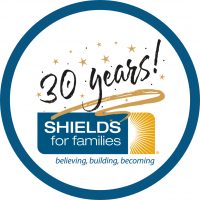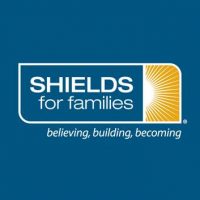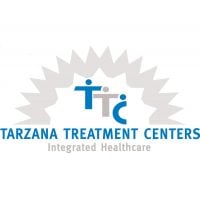Get Off Drugs - Women's Home
Drug Rehab Center in Compton, California
Women's Home is an accredited facility that provides holistic treatment programs, including long-term residential care and a wide range of therapies, to help women with drug and alcohol addiction achieve their recovery goals.
About This California Facility
The Women's Home provides comprehensive treatment services for those suffering from alcohol and drug addiction in the Compton, CA area. Their variety of programs are designed to meet the needs of both individuals and families affected by addiction. Their team of professionals are trained to deliver evidence-based treatment programs in a compassionate environment. The comprehensive services includes inpatient and aftercare support, as well as intensive outpatient and sober-living services. These services are tailored to meet the needs of each individual, with a focus on dual diagnosis, alcohol and opioid addictions.
The Women's Home is accredited by SAMHSA, and they accept private health insurance. Their evidence-based treatment approach focuses on individualized care and relationships, with special attention to Cognitive Behavioral Therapy (CBT), family therapy, group therapy, trauma therapy, couples therapy, and nicotine replacement therapy. Through these treatment services, clients are provided with the tools needed to successfully achieve recovery, gain independent living skills and overcome their addiction challenges. The team is committed to achieving successful long-term recovery for all individuals seeking treatment.
Genders
Ages
Modality
Additional
Accreditations
SAMHSA
Conditions and Issues Treated
Many people who struggle with opioid addiction need to attend specific programs like methadone , Suboxone or Vivitrol clinics.
These types of programs will provide the patient with legal, prescription medications that can help them overcome their cravings for illegal opioids like heroin or fentanyl . If the patient has a chronic condition like Hepatitis C, they must undergo treatment before they can begin taking these medications.
Dual Diagnosis refers to someone who is both dealing with addiction and another mental health issue.
There are different kinds of Dual Diagnosis: A person who simultaneously experiences both a mental illness and an addiction disorder. Or, a person who experiences one or more coexisting (simultaneous) mental health conditions in addition to a primary substance use disorder.
Some conditions that commonly co-occur with addiction include:
- Personality Disorders (Borderline, Narcissistic)
- Mood Disorders (Bipolar Disorder, Depression, Anxiety Disorder)
- PTSD (Post Traumatic Stress Disorder), OCD (Obsessive Compulsive Disorder), ADHD (Attention Deficit Hyperactivity Disorder)
- Schizophrenia, Psychosis, Hallucinations, Delusions
Levels of Care Offered at Get Off Drugs - Women's Home
This center offers a variety of custom treatment tailored to individual recovery. Currently available are Aftercare Support, Dual-Diagnosis, Inpatient, Intensive Outpatient, Sober-Living / Half-Way, with additional therapies available as listed below.
Individuals who are suffering from severe addiction or have a high risk for dangerous health concerns are often recommended to receive inpatient treatment.
Choosing to enter an inpatient treatment program is beneficial for people who are suffering from severe addiction, or who have a high risk for dangerous health concerns.
Inpatient treatment is beneficial for:
- People who have a history of severe withdrawal.
- People who have attempted to overcome addiction on their own without success.
- People who have a history of relapse, or have recently relapsed.
- People at risk for drug overdose or withdrawal-related complications.
- People with medical conditions that are worsened by drug or alcohol use.
Outpatient addiction treatment is beneficial for people who are able to function well in their day-to-day lives. It is recommended for people who are not yet ready to end their relationships with friends or family members who might be encouraging drug and alcohol use.
Intensive outpatient treatment is beneficial for:
- People who are able to attend treatment more than 3 times per week.
- People who do not meet the criteria for inpatient treatment.
- People who are able to contribute to their own recovery outside of the treatment center.
- People who are motivated towards recovery.
- People who are able to overcome addiction on their own without the need for higher levels of care.
Sober Living Home (SLH) is a term used to describe houses where people recovering from addiction can stay. The goal of these places is to provide immediate support and protection that the addict needs and force them to live a life free from substance abuse.
SLH’s typically allow the addict to live there for 30, 60, or 90 days. This is intended to enable the addict time to develop a foundation of “sobriety,”; allowing them to adjust to living without the substance while building new life skills. During this time, addicts also typically attend regular addiction, education classes.
People who have completed a rehab program often need continued support from the addiction treatment team in order to remain abstinent from drugs and alcohol. Aftercare can be beneficial for personal, social, and emotional growth.
Common aftercare options include:
- Individual Therapy – this type of addiction counseling is available on a one-on-one basis. This can be beneficial for people with a high degree of emotional turmoil and a strong desire to overcome addiction.
- Group Therapy – this type of addiction counseling is available in a group setting. This type of treatment can be beneficial for people who are unable to attend regular therapy appointments due to other responsibilities.
- Family Therapy – this type of addiction counseling is available to the family members of addicts. This can be beneficial for people who are unable to fully comprehend what their loved ones are experiencing due to addiction.
Therapies & Programs
Therapy sessions focused on the individual addict can provide much-needed guidance as they work toward overcoming their addiction. These types of sessions typically involve guidance from a therapist, who will help addicts identify and process their feelings and cravings.
During these sessions, addicts may develop plans for coping with the triggers that typically lead to relapse and learn how to avoid those triggers during their recovery process.
If you are looking for drug recovery, couples therapy can be a great option. This type of therapy can help rebuild trust and joy in relationships that may have been damaged by addiction. It can also help reduce the dysfunctional behavior in a relationship that may trigger addiction. A patient’s partner will be involved in the process. They can also benefit from therapy, especially if they are trying to live with an addict.
The main goal of family therapy for drug addiction is to create an environment where communication can occur without judgment, hostility, or blame that often occurs within a family.
Family therapy is a type of group problem-solving that aims to improve communication and relationships between the patient, their family, and sometimes friends. The therapist is with the family as they learn to communicate with each other differently, especially with the addict when s/he is using.
The family can learn to reduce their enabling behavior or rally together and support each other during tough times. The patient also learns how to deal with their addiction and maintain sobriety while interacting with the family.
Different types of addiction treatment services are available. Within this article, group therapy is of interest due to its high success rate compared to individual therapy. Group therapy settings are beneficial because they allow recovering addicts to build a strong support network.
Benefits of group therapy are:
- Reduces feelings of isolation
- Immediate access to social support in the form of fellow addicts in recovery
- Lowers risk of relapse
- Increases rate of sobriety
- Builds coping skills that can be applied to everyday life
Trauma Therapy is a form of therapy that involves working with a patient to help them process and understand the past trauma(s) in their life. The idea behind it is that while some people can experience traumatic events and not have lasting psychiatric symptoms, many others will. In these cases, memories of the event get hidden from consciousness but continue to influence how the person processes and copes with things in their life. They may avoid situations that resemble what happened or become suddenly angry or irritated to a situation that reminds them of a past event.
With the help of a therapist, people can go back over memories and experiences. This helps them understand why they are having problems coping with certain situations and how they can change how they think and react to things. This therapy is typically done using techniques such as visualization, discussion, and writing down thoughts and feelings.
Trauma therapists will work with clients to help them understand their past and present relationships. Many times, patients may believe that something is inherently wrong with them or that they are unworthy of love. A therapist aims to correct these negative feelings and behaviors by helping the person realize that their actions do not reflect who they truly are.
One of the main goals of trauma therapy is to help clients express their emotions and talk about what they are feeling. This benefits both to increase awareness of how certain events have impacted them in the past and enables patients to realize that they can make changes in their lives.
Cognitive Behavioral Therapy (CBT) is used by drug treatment centers to help addicts comprehend the causes of their substance abuse and the consequences that follow. Through CBT, clients learn to recognize and avoid high-risk situations and cope with challenging situations when they arise.
CBT treatment often includes a combination of individual therapy, group therapy, lectures, and other activities. The treatment’s goal is to help addicts gain self-control and maintain abstinence from drugs and alcohol over the long term so that an addict can get sober and lead a more productive life.
CBT is particularly effective in helping people overcome their drug problems, especially people whose drug abuse is motivated by self-defeating beliefs and emotions.
REBT stands for rational emotional behavior therapy. This type of cognitive-behavioral therapy, or CBT, combines images with thoughts and behaviors to provide deep self-help education in the process of recovery from addiction.
It’s important because it allows one recovering addict to work through their issues on their knowledge they have support if needed.
Rational Emotive Behavioral Therapy (REBT) is based on the idea people operate under many irrational but habitual patterns of thought which fuel harmful practices and feelings. As one learns to identify these destructive patterns, one can replace them with healthier thoughts and behaviors.
Those struggling with addiction in California can benefit from learning certain life skills. It is not as simple as quitting drinking or taking drugs and thinking that the hard part is over. Being sober means living a whole new way of life. Many recovering addicts have found that they need to develop talents like time management, organization, communication skills, socialization skills, and self-esteem to make their life in sobriety work.
Drug and alcohol addiction can lead to a breakdown in life skills. Learning certain life skills can help those who are struggling with addiction. Life skills training at Get Off Drugs - Women's Home in Compton, CA teaches patients skills such as time management, budgeting, and social abilities to improve their quality of life and prevent relapse.
An addict’s life skills are maladaptive, meaning they are counterproductive. An addict may have learned poor time management skills growing up, have a hard time budgeting money, or be socially awkward. An addict’s poor life skills can lead to relapse and the inability to achieve long-term sobriety. Life skills training teaches patients effective coping mechanisms, which can help them live a clean and sober life.
Payment Options Accepted
For specific insurance or payment methods please contact us.
Is your insurance accepted?
Ask an expert, call (888) 674-0062
Additional Details
Specifics, location, and helpful extra information.
Compton, California 90220 Phone Number(562) 428-3487 Meta DetailsUpdated November 25, 2023
Staff Verified
Patient Reviews
There are no reviews yet. Be the first one to write one.
Compton, California Addiction Information
More than 3 million of California's citizens are addicted to illegal drugs. Almost 800,000 people use hard drugs, almost 5 million use marijuana, and another 2.1 million abuse alcohol every year. Other substance abuse issues such as binge drinking and teen drug use are also common. Many illegal drugs such as cocaine, heroin, methamphetamine, and marijuana are smuggled into the state from Mexico.
Compton, CA, is located in Los Angeles County, which had the highest number of overdose deaths in 2013. Approximately 9.4% of the population in Compton abuses drugs. Additionally, there are 18.7 alcoholics per 1,000 people in Compton. Drug and alcohol abuse costs the city about $100 million each year. There are plenty of resources available to help someone stay sober, and it's important to seek out those resources.
Treatment in Nearby Cities
- Chula Vista, CA (108.2 mi.)
- Victorville, CA (69.7 mi.)
- Calabasas, CA (30.8 mi.)
- Lemon Grove, CA (104.6 mi.)
- Redlands, CA (60.7 mi.)
Centers near Get Off Drugs - Women's Home
The facility name, logo and brand are the property and registered trademarks of Get Off Drugs - Women's Home, and are being used for identification and informational purposes only. Use of these names, logos and brands shall not imply endorsement. RehabNow.org is not affiliated with or sponsored by Get Off Drugs - Women's Home.




